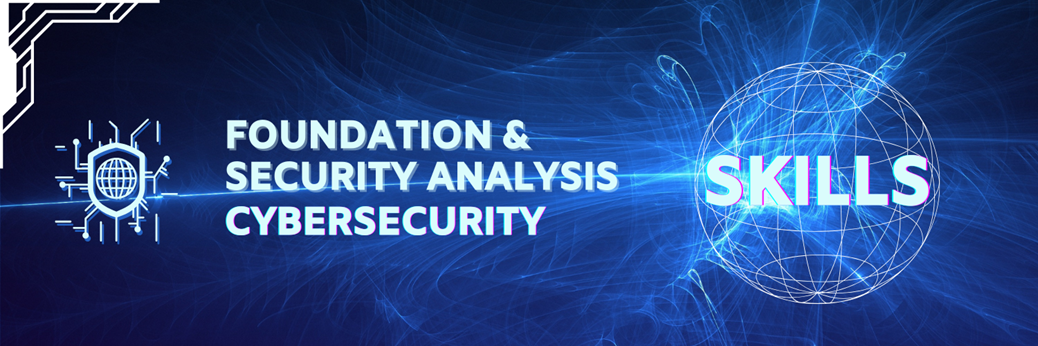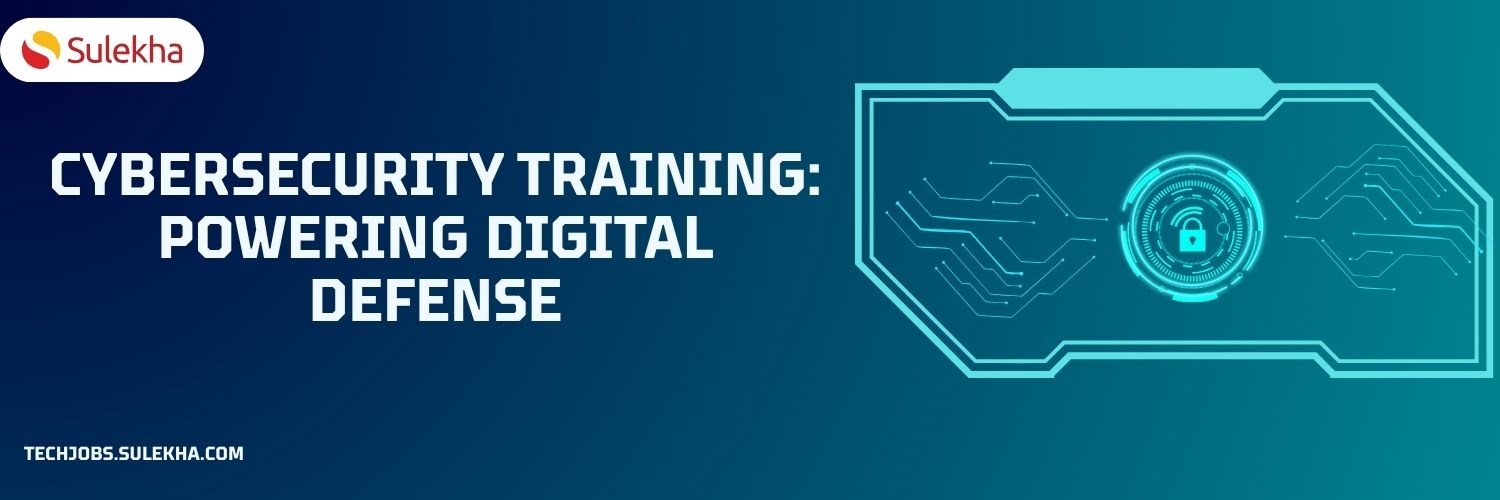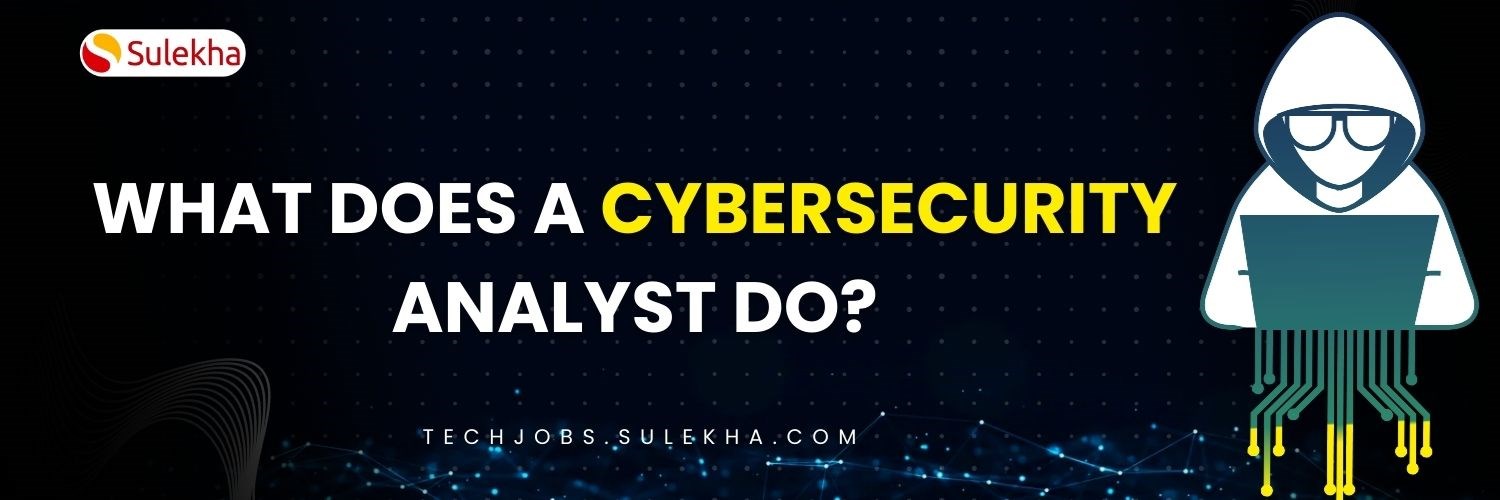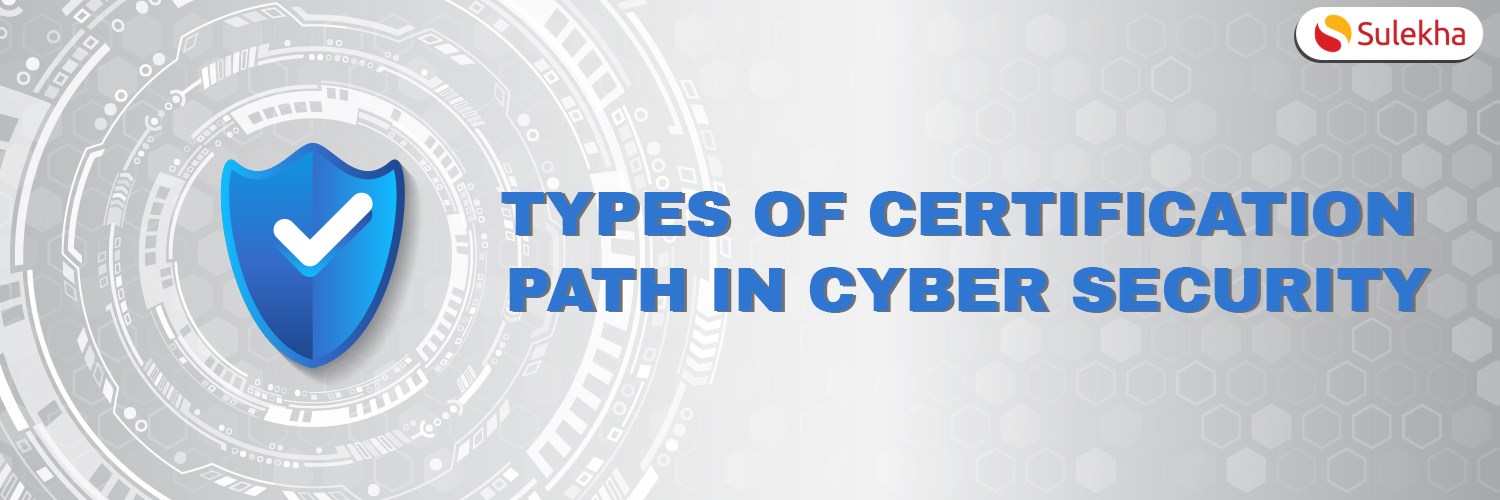Why Foundation and Security Analyst Skills are Crucial to Begin Your Career in Cybersecurity

Cybersecurity is a profiling career path across various industries and organizations due to the increasing cyber-attack. We rely on the digital platform daily for different reasons, from purchasing a product to registering our personal information on any website.
Due to this, the need for skilled professionals increases exponentially in information technology, Government agencies, Healthcare, and others.
Before we delve into the study of Cybersecurity skills, we shall go through a few essential topics like why Cybersecurity is a proliferating career path, what Cybersecurity is, and the future demand for Cybersecurity.
Why Cybersecurity is a proliferating career path?
Cybersecurity is increasing as a career path due to a combination of factors. First and foremost, the increasing reliance on digital technology in both personal and professional spheres has created a vast attack surface for cybercriminals, leading to a growing demand for skilled professionals who can protect against cyber threats. High-profile data breaches and cyberattacks have raised awareness about the importance of Cybersecurity, prompting organizations to invest heavily in bolstering their defenses.
The rapid evolution of technology, with trends like IoT and cloud computing, introduces new security challenges, creating a continuous need for cybersecurity professionals who can adapt to emerging threats. Moreover, the shortage of qualified cybersecurity talent has resulted in competitive salaries and abundant job opportunities, making it an attractive and proliferating career choice.
What is Cybersecurity?
Cybersecurity is the practice of protecting computer systems, networks, and data from unauthorized access or attacks. It involves implementing measures and protocols to prevent cyber threats like hacking, malware, and data breaches. Cybersecurity ensures the confidentiality, integrity, and availability of digital assets and information.
The future demand for Cybersecurity:
Now, we shall discuss foundation and Security analyst skills and the core topics that are categorized under this:
CyberSecurity Foundation skills
Risk management
Risk management is the primary cause of emerging cyber security because Data Breaches increase across the organization to steal the confidential data of targeted organizations.
Therefore, the demand for skilled professionals increases to safeguard the computer system or internet from malicious attacks. So, those intending to begin their career in Cybersecurity should develop risk management skills, considered a prominent skill in this field.
The primary concepts include Risk Assessment, Risk Mitigation, Risk Monitoring, Risk Communication, Risk Appetite and Tolerance, Risk Response Strategies, Key Risk Indicators (KRIs), Compliance and Regulatory Requirements, Risk Culture, Scenario Planning, Risk Reporting, Continuity and Disaster Recovery, Third-Party Risk Management and others.
Networking:
Cybercriminals or hackers' primary focus is to breach the network. Every organization, small to large, merely relies on the internet or network. As mentioned, network infrastructure leverages various technologies to connect and facilitate communication between multiple devices, systems, or entities. So, with a network connection, we can connect via a cloud platform and exchange data. To become a cybersecurity professional, you should have networking skills.
The networking concepts include Protocol, IP Addressing, Subnetting, Routing, Switching, Firewall, DNS (Domain Name System), TCP/IP, LAN (Local Area Network), WAN (Wide Area Network), VPN (Virtual Private Network), and others.
To acquire an in-depth understanding of networking, you can join a networking course to help you learn basic to advanced networking concepts.
Situational awareness:
As cyber security measures increase to secure organization data, new cyber attack methods and tools increase simultaneously. This means the method of new types of hacking evolves, and cyber security professionals must develop their skills and knowledge to cope with the latest technology.
They should understand the trend of attacks like Ransomware-as-a-Service (RaaS), Supply Chain Attacks, Zero-Day Exploits, AI-Powered Attacks, IoT (Internet of Things) Exploitation, Cloud-Based Attacks, and others and how they can be mitigated. Situational awareness qualifies cybersecurity professionals to comprehend how to best secure the organization based on the prevailing threats at a given time.
Toolkits:
Hacking is unlike the method we have seen in the movies and is entirely different from what we have seen. Hacking is a slow and steady process of deriving complete data from an organization. Furthermore, it is an automated process.
Therefore, hackers utilize distinct toolkits to perform actions. On the other side, professionals use unique toolkits to scan for threats or to stop attacks that are in progress.
Cybersecurity professionals need to understand how to use some of these toolkits or any other technological tools provided by their organization. Some toolkits include Antivirus Software, Firewalls, Intrusion Detection Systems (IDS), Intrusion Prevention Systems (IPS), Vulnerability Scanners, Penetration Testing Tools, etc.
Security analyst skills:
Security analyst skills are crucial because they enable organizations to proactively identify and mitigate cybersecurity threats, protecting sensitive data and systems. These professionals analyze complex data, assess vulnerabilities, and develop strategies to defend against evolving cyber threats, helping prevent financial losses, reputational damage, and legal consequences.
Threat assessment:
Threat assessment is a crucial concept in Cybersecurity because assessment skills aid in securing an organization's confidential data from threats. So, as a cybersecurity specialist, you should know the types of threats and how to implement them efficiently.The type of threats includes Malware, Phishing, Ransomware, DDoS Attacks (Distributed Denial of Service), Social Engineering, Zero-Day Exploits, Advanced Persistent Threats (APTs), Man-in-the-Middle Attacks, Spoofing, SQL Injection, Cross-Site Scripting (XSS), Password Cracking, Identity Theft, etc.
Understanding these skills will help you work efficiently and protect the organization before causing damage. So, this is an important skill you must acquire before entering this field.
Vulnerability assessment:
This assessment typically involves a combination of automated scanning tools and manual testing to assess areas like software configurations, network architecture, and application code for known vulnerabilities or misconfigurations.
Vulnerabilities can be found using various methods and technologies. Nmap illustrates a tool that may be used for vulnerability analysis. Since Nmap operates through a command-line interface, you must become familiar with the various scan guidelines. A cybersecurity expert should be able to determine whether the login page's code is vulnerable to SQL injection or cross-site scripting assaults. They can check to see if all inputs are legitimate to accomplish this.
Log collection and analysis:
Cybersecurity professionals are responsible for finding historical data.
Additionally, they must be able to gather data on computer, network, or system performance when required, such as when system users see suspicious behavior and wish to know why. Creating automatic data gathering systems that timestamp system or network activity is known as log collection.
While some systems already have logging capabilities, others need third-party applications. Professionals in the field of Cybersecurity should be familiar with the technologies available for collecting and analyzing log data. For example, the network connection logging tool Wireshark is effective.
Furthermore, it can be used to examine the gathered logs. The IP addresses of all the networked devices can be determined, together with the ports from which and to which the communication was directed.
In conclusion, foundational IT knowledge and security analyst skills form the essential launchpad for a successful career in Cybersecurity. These skills provide the necessary groundwork and expertise to understand and effectively combat evolving digital threats, making them indispensable for aspiring cybersecurity professionals.
Find a course provider to learn Cyber Security
Java training | J2EE training | J2EE Jboss training | Apache JMeter trainingTake the next step towards your professional goals in Cyber Security
Don't hesitate to talk with our course advisor right now
Receive a call
Contact NowMake a call
+1-732-338-7323Take our FREE Skill Assessment Test to discover your strengths and earn a certificate upon completion.
Enroll for the next batch
hands on cyber security training
- Sep 1 2025
- Online
cyber security classes online
- Sep 2 2025
- Online
hands on cyber security training
- Sep 3 2025
- Online
Cyber Security
- Sep 4 2025
- Online
hands on cyber security training
- Sep 5 2025
- Online
Related blogs on Cyber Security to learn more

Cybersecurity Training: Powering Digital Defense
Explore top cybersecurity training programs in the USA to meet rising demand in digital defense. Learn about certifications, salaries, and career opportunities in this high-growth field.

What Does a Cybersecurity Analyst Do? 2025
Discover the vital role of a Cybersecurity Analyst in 2025, protecting organizations from evolving cyber threats through monitoring, threat assessment, and incident response. Learn about career paths, key skills, certifications, and why now is the be

What essential skills and trends should cybersecurity professionals navigate in 2024?
Cybersecurity professionals in 2024 must master a diverse skillset, from cloud security and AI to soft skills like communication and problem-solving, to stay ahead of evolving cyber threats and regulations.

What Does a Cybersecurity Analyst Do?
Learn about the role of a Cybersecurity Analyst, responsible for protecting an organization's computer networks from cyberattacks.

10 Popular Cybersecurity Certifications
From CompTIA Security+ to CISSP, these certifications can boost your career and demonstrate your commitment to protecting computer systems and networks.

What are the most popular technical certifications for future career advancement?
Unlock your potential with insights into 5 popular technical certifications for future career growth, spanning cybersecurity, blockchain, cloud computing and more. Explore pathways for professional advancement today.

How to Become a Security Architect: 2024 Career Guide
How to Become a Security Architect: 2024 Career Guide In today's fast-paced and digitally interconnected world, the role of a Security Architect

Tips to get a job in top companies - Find out about the strategy and preparation to get started with Cybersecurity
As companies adopt cloud services, IoT devices, and remote work solutions, their attack surface expands. Cybersecurity experts are essential to ensure the security of these technologies and networks. The expertise of cybersecurity specialists bolster

Types of certification path in cyber security
Pursuing certification courses in cybersecurity is considered mandatory due to several compelling reasons. Firstly, the ever-evolving nature of cyber threats demands that cybersecurity professionals stay updated with the latest knowledge and skills.
Latest blogs on technology to explore

Understanding Artificial Intelligence: Hype, Reality, and the Road Ahead
Explore the reality of Artificial Intelligence (AI) — its impact, how it works, and its potential risks. Understand AI's benefits, challenges, and how to navigate its role in shaping industries and everyday life with expert training programs

How Much Do Healthcare Administrators Make?
Discover how much healthcare administrators make, the importance of healthcare, career opportunities, and potential job roles. Learn about salary ranges, career growth, and training programs with Sulekha to kickstart your healthcare administration jo

How to Gain the High-Income Skills Employers Are Looking For?
Discover top high-income skills like software development, data analysis, AI, and project management that employers seek. Learn key skills and growth opportunities to boost your career.

What Companies Expect from Product Managers in 2025: Skills, Tools, and Trends
Explore what companies expect from Product Managers in 2025, including essential skills, tools, certifications, and salary trends. Learn how to stay ahead in a rapidly evolving, tech-driven product management landscape.

Breaking Into AI Engineering: Skills, Salaries, and Demand in the US
Discover how to break into AI engineering with insights on essential skills, salary expectations, and rising demand in the US. Learn about career paths, certifications, and how to succeed in one of tech’s fastest-growing fields.

Cybersecurity Training: Powering Digital Defense
Explore top cybersecurity training programs in the USA to meet rising demand in digital defense. Learn about certifications, salaries, and career opportunities in this high-growth field.

Why Pursue Data Science Training?
Empower your career in a data-driven world. Learn why data science training is crucial for high-demand jobs, informed decisions, and staying ahead with essential skills.

What Does a Cybersecurity Analyst Do? 2025
Discover the vital role of a Cybersecurity Analyst in 2025, protecting organizations from evolving cyber threats through monitoring, threat assessment, and incident response. Learn about career paths, key skills, certifications, and why now is the be

Artificial intelligence in healthcare: Medical and Diagnosis field
Artificial intelligence in healthcare: Medical and Diagnosis field

iOS 18.5 Is Here: 7 Reasons You Should Update Right Now
In this blog, we shall discuss Apple releases iOS 18.5 with new features and bug fixes
